Five reasons Boris Johnson shouldn’t get a second chance, from trans rights to ‘bum boys’

Boris Johnson could be about to stage a comeback. (Getty/Unsplash)
Within hours of Liz Truss’ resignation as prime minister, word started to spread that Boris Johnson was considering a comeback.
Johnson resigned as prime minister just over three months ago after a spate of controversies. He survived Partygate and other scandals, but in the end he was brought down by his support for Chris Pincher, a gay MP who was accused of groping two men.
Remarkably, Johnson now wants to swoop in and return to power – and he’s already got the backing of numerous MPs.
If Johnson does manage to get back into No 10, it likely wouldn’t be welcomed by LGBTQ+ people. During his tenure as prime minister, LGBTQ+ rights completely stagnated, with gender recognition reform and conversion therapy ending up dead in the water.
As the Tories prepare to elect yet another leader, we bring you five reasons why Boris Johnson making his big return to the fold would be a bad idea.
1. Boris Johnson called gay men ‘tank-topped bum boys’
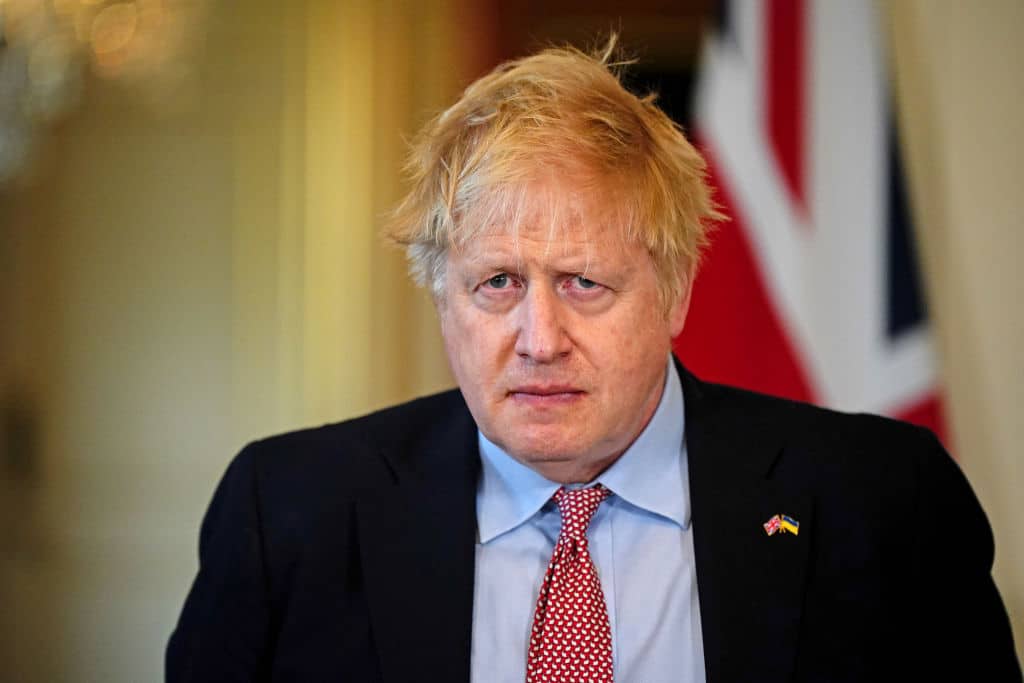
Boris Johnson welcomes The President Of Poland, Andrzej Duda (not shown) to Downing Street on April 07, 2022. (Aaron Chown – WPA Pool/Getty)
Before he became prime minister, Boris Johnson had a long history of making offensive, degrading comments about LGBTQ+ people and other minority groups.
Johnson – who was once branded a “racist, homophobic misogynist” by Labour’s Angela Rayner – first described gay men as “tank-topped bum boys” in a Telegraph column in 1998.
That wasn’t his only faux-pas during his time as a columnist. He also spoke out against same-sex marriage, explaining that he couldn’t see the difference between two men getting married and three men marrying a dog.
Johnson has largely changed his stance since then, and he later came out in support of same-sex marriage, but he has resolutely refused to apologise for his “bum boys” comment.
2. He failed to ban conversion therapy
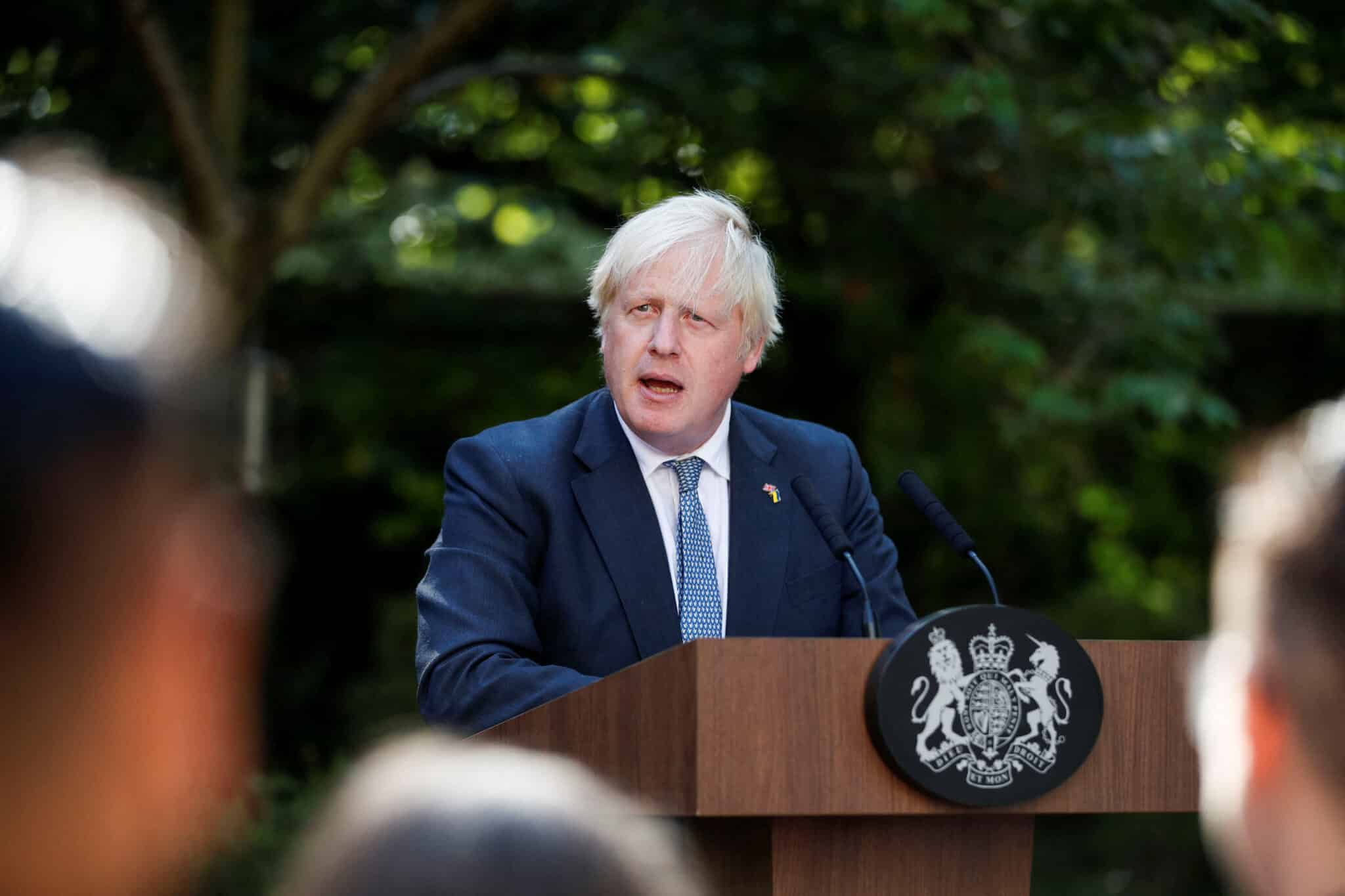
Boris Johnson’s time in Downing Street was one of the massive steps back for queer rights. (Peter Nicholls/WPA Pool via Getty Images)
A ban on conversion therapy was first promised under Theresa May’s government in 2018, but four years on, no legislation has been brought forward.
The ban immediately took a backseat once Johnson became the Conservative leader – both he and then minister for women and equalities Liz Truss repeatedly promised they would outlaw the practice, but no action was taken.
Eventually, Johnson went over Truss’ head and decided to scrap the ban entirely. The backlash was so severe that he did yet another u-turn, opting to instead push ahead with a conversion therapy ban that would exclude trans people.
After all that, Johnson resigned shortly afterwards in disgrace, meaning a conversion therapy ban never got to see the light of day. It remains unclear whether the practice, which has been described as “torture”, will ever be banned in the UK.
3. Gender recognition reform was scrapped during Johnson’s tenure
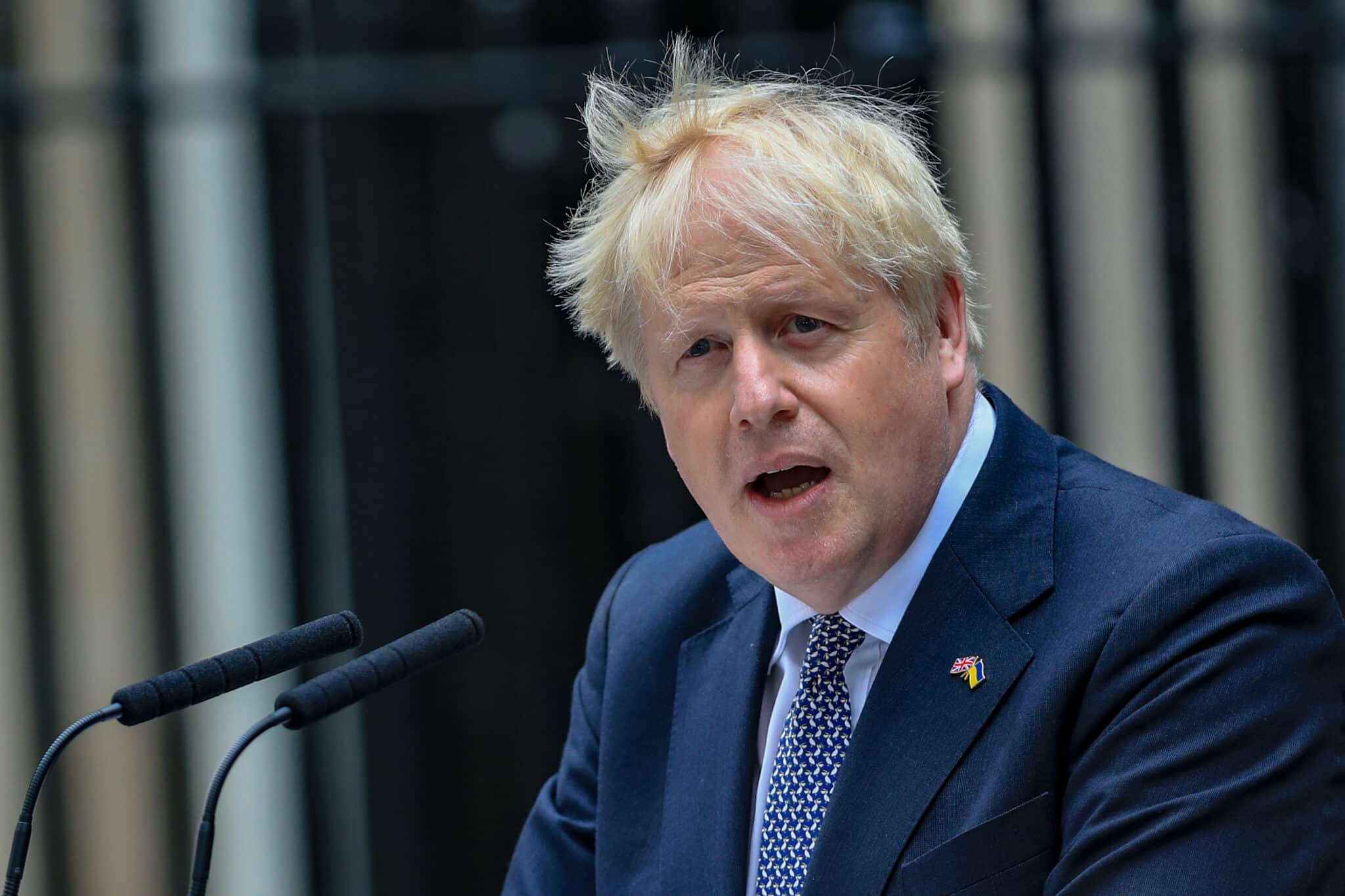
Boris Johnson. (Vudi Xhymshiti/Anadolu Agency via Getty Images)
Before Boris Johnson ascended to power, plans were in motion to modernise the Gender Recognition Act (GRA). There was talk of introducing self-identification for trans people, a move that would have made the process of legal gender recognition less cumbersome.
Under Johnson and Truss, those plans were entirely scrapped, with reports at the time suggesting that they would instead try to “placate” the LGBTQ+ community with a conversion therapy ban.
Instead, the government digitised the gender recognition process and reduced the fee – but nothing else was done to advance trans rights.
4. He backed policies that exclude trans women from sport
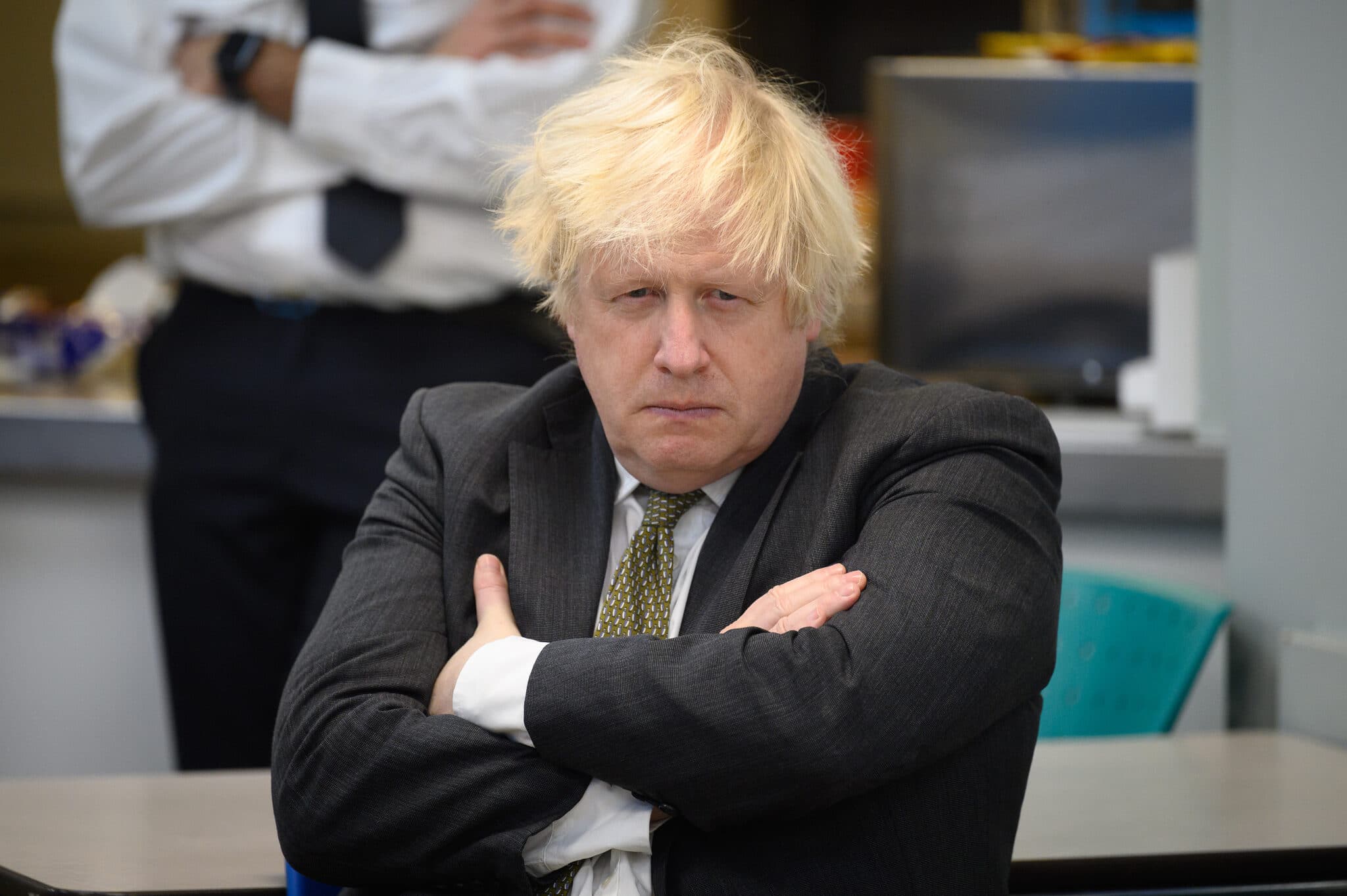
Boris Johnson.
(Leon Neal/Getty)
Johnson faced criticism from LGBTQ+ campaigners when he threw his support behind a policy introduced by swimming’s governing body which excluded trans women from competing in elite races.
In the dying days of his premiership, Johnson announced that he could see “no reason to dissent” on the policy and that it was in line with what he had previously said on the subject.
LGBTQ+ sporting bodies have condemned such policies and bans as discriminatory and exclusionary.
5. Johnson made cruel comments about trans women and genitals
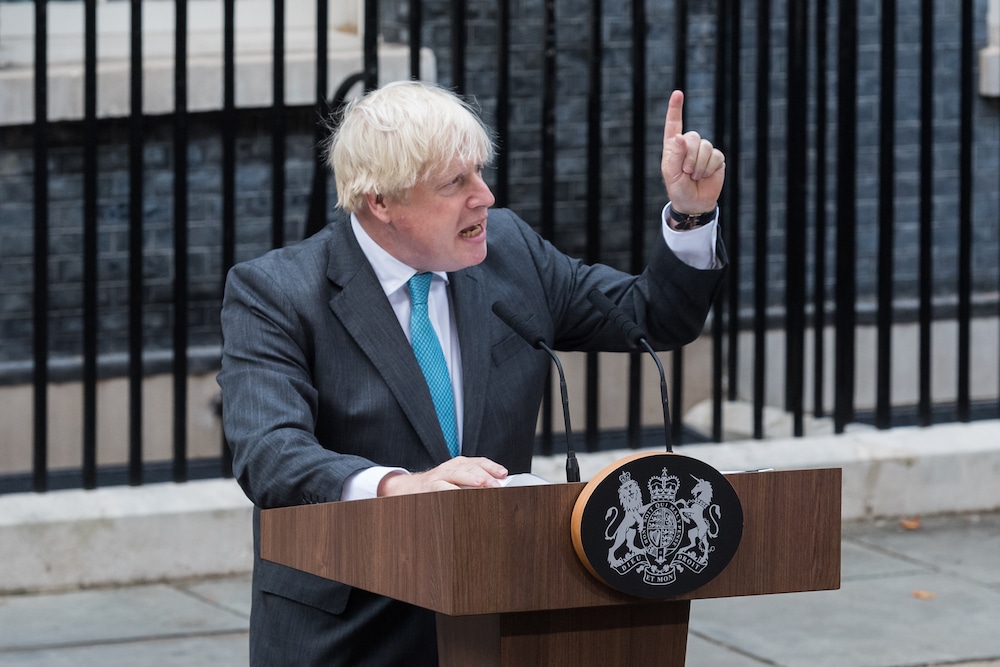
Outgoing prime minister Boris Johnson gives a final speech outside 10 Downing Street . (Anadolu Agency via Getty / Wiktor Szymanowicz)
In one of his lowest points, Johnson waded into the cruel, toxic debate about genitals and trans women in June.
When asked if a woman can be born with a penis, Johnson reportedly replied: “Not without being a man.”
He also said “issues of gender” raise “particular problems”.
“I think I’ve spoken of three concerns I’ve had in the past,” Johnson said.
“They are to do with the age at which you can deem it competent to transition, the question of safe spaces for women, and the difficulties you have with sporting competitions.”
If Johnson does manage to return to the fold and gets the backing of fellow MPs, it’s almost certain that no progress would be made on LGBTQ+ rights for the remainder of the government’s lifespan.

